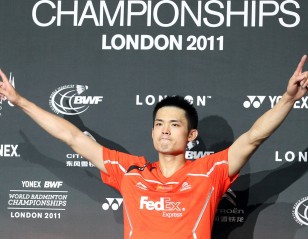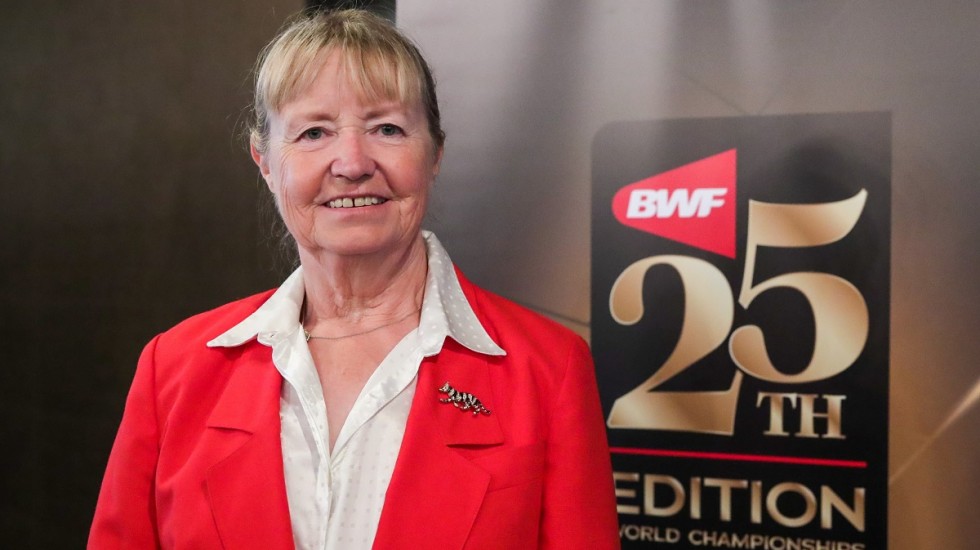
Legend Who Broke Records and Paved the Way for Future Stars – 25th Edition World C’Ships
Badminton produces stories of players with integrity, commitment, talent and a great career.
One illustrious character of the sport is England’s Gillian Gilks (née Perrin) who had shown during her playing career at the top level between 1969 and 1988 that tenacity is a great human quality.
Her achievements make her an extremely important role model for today’s young female badminton players.
We figured it was apt during the 25th Edition celebrations of the BWF Badminton World Championships to celebrate some of the best – perhaps, lesser known these days – stars who set the bar high for women’s badminton.
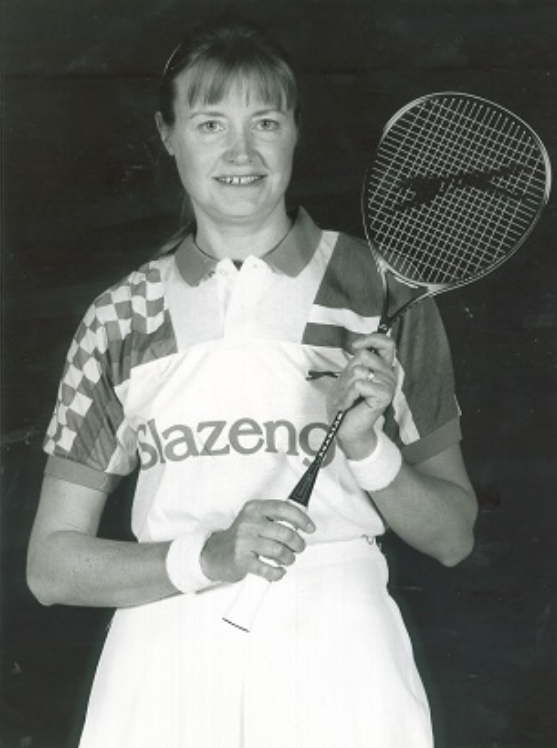
Gilks, now Goodwin (born 20 June, 1950, in London), takes us through her stimulating story of resilience, passion, joy and disappointments in an e-mail interview.
Memories of the World Championships
She began her World Championships career with two silver medals at the maiden 1977 World Championships in Malmo, Sweden.
Gilks lost the singles to Denmark’s Lene Koppen and the mixed doubles with Derek Talbot to the Dane and her partner Steen Skovgaard.
That would be her best result at the World Championships.
BWF: Did you have any regrets at the World Championships?
Gillian Gilks (GG): Yes, I was unhappy I missed gold in 1977.
There was more disappointment three years later when she missed the second World Championships in Jakarta, 1980, under bizarre circumstances.
She explains:
GG: My request to travel early to Indonesia to acclimatise properly was denied by the Badminton Association of England even though I was prepared to pay extra costs.
That came as a big blow to her as she had expected to improve on her efforts from 1977.
She returned in 1983 to win bronze with Gillian Clark in women’s doubles but then experienced somewhat of a drought – not claiming another medal until 1987 when she clinched bronze with Martin Dew in mixed doubles.
Gilks was quick to remind us though of her amazing stretch of results in other tournaments whereby mid-1976 she held the triple crown in four major events.
GG: I won triple titles in the Commonwealth Games (1974), Nationals, Europeans and All England (all 1976). In fact, up until the end of 1976, I was the triple champion in all four at the same time. The Queen awarded me the MBE and I also won the first ladies Superstars event in 1977.
The Superstars event was another interesting tale in the career of Gilks. Superstars was a made-for-TV all-round sports competition that pitted elite athletes from different sports against each other.
Such was her schedule, Gilks had to make the mad dash from Malmo, Sweden, in an aircraft chartered by Adidas – silver medals in tow – all the way to England in just under 12 hours in order to make her appearance. Before commencing, she was even asked to perform an Eskimo roll as proof of her ability to float in a kayak.
The fact she won the competition – testing her skills in rowing, kayaking, cycling, basketball, an 800m run and much more – was further proof of her all-round ability.
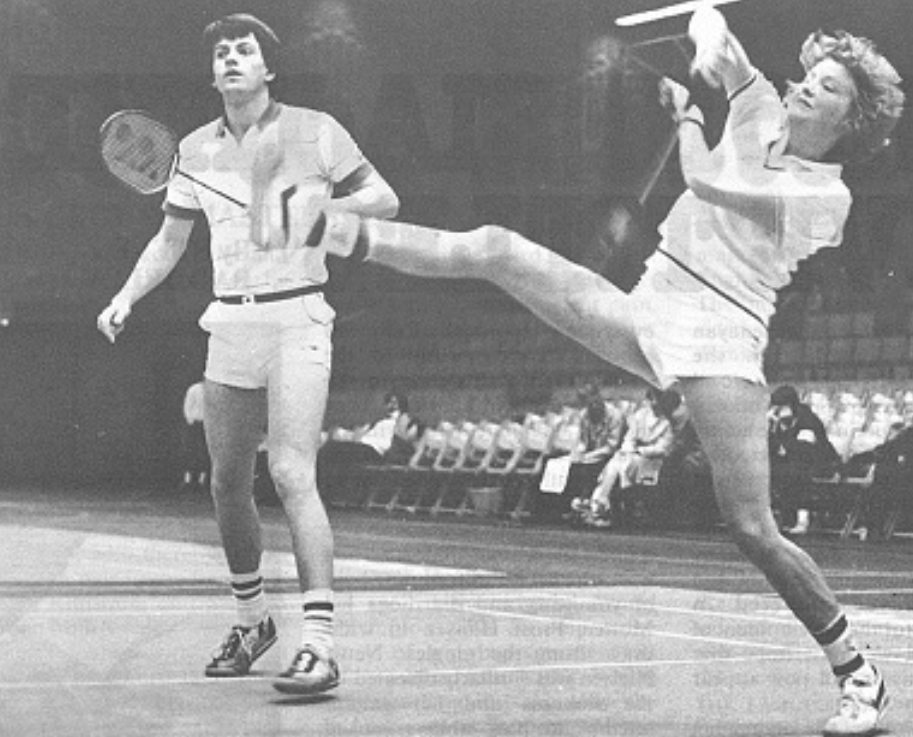
Triple Delight
In 1980, Gilks surprisingly quit singles to concentrate on doubles. “I needed time to run my sports shop in north London,” she said.
It would spell the end of an era of the great all-rounder.
In ‘76, she was the first player to claim the triple crown at All England since Dane, Tonny Kristine Ahm, in 1952. No woman or man since has achieved this feat. It is a record unlikely to ever be broken.
GG: Winning all three events at the All England in 1976 was definitely my biggest achievement.
BWF: Could any other player have done the triple during your time?
GG: The Chinese, Wu Dixi, was a great all-rounder who was probably capable of winning all three events. She had great movement, deception, attack, defence and being left-handed, she was difficult to read.
BWF: Why do you think there has yet to be another player to replicate your feats to this day?
GG: It is very difficult for any player today to concentrate on three events in a Major tournament.
Headline-grabbing Gilks had her share of disputes, aside from her absence from the 1980 World Championships.
BWF: You were banned when you couldn’t commit to playing every event the National Association demanded before the 1978 Uber Cup and 1978 Commonwealth Games in Edmonton, Canada. Explain what happened after?
GG: Invitations for me to play in tournaments abroad were withheld by the Badminton Association of England, who offered to send other English players instead, resulting in a court case dealing with restraint of trade.
GG: I had time to run my sports shop in north London as I was banned from playing for England during the years prior to settling the court case.
She was also under the spotlight in 1980 following nasal cosmetic surgery and a new hairdo.
BWF: Why did you do both?
GG: Nasal surgery was urgently needed to improve my breathing as my nasal inhalant and cough mixtures contained banned substances. The surgeon suggested widening the nostrils and improving the shape, both of which helped tremendously.
I did regret the hairstyle change though (a perm) as it upset the sponsors.
One thing that was never in doubt was her silky-smooth skills.
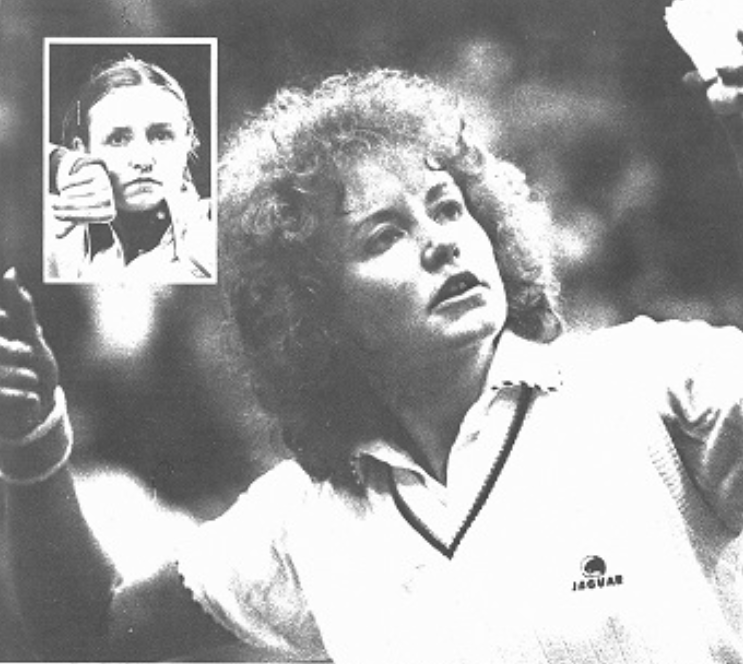
Few Superlatives
Gilks’ talent was widely recognised as “glorious” and badminton expert, Pat Davis, once wrote: “Never has there been a more talented all-rounder.”
She first picked up a racket at the age of eight at a junior badminton club at Cheam Sports Club ran by her father. “I also played tennis but had more badminton opportunities,” she added.
Her career would blossom under the care of Angela Bairstow and Ian Palmer and set in motion her rise to greatness.
“They mapped out the long road with the goals to achieve provided I was prepared to work hard enough.
“Later, I trained with Mike Goodwin (whom she married after her divorce with Mike Gilks in 1976) for speed, fitness, new strokes and dedicated psychology.”
Gilks’ subsequent record at the top speaks for itself. It is a testament to her sublime play that many of her achievements still shine today.
- At a sprightly 12 years and six months old, she showed an undeniable talent by winning the English National U15 Junior Championships.
- Over three decades, Gilks dominated the English nationals with 37 titles (26 senior and 11 junior) from 1969 to 1985.
- Gilks made her first appearance in both doubles finals at the European Championships in 1968 when she was just short of 18 years old.
- But it would take her another four years before she won her first European Championships title.
- She would go on to claim 12 more titles from 1972 to 1986.
- She eventually retired with the formidable record of 11 All England titles (two singles, three women’s doubles, six mixed doubles).
As we gather in Basel today to recognise the medallists from the 1977 World Championships, it is fitting that the badminton community pays tribute to this true legend of the sport.
**
To honour the medallists of the first World Championships, BWF has organised a reception on the final day of the TOTAL BWF World Championships 2019. Among the attendees are Flemming Delfs, Gillian Gilks, Nora Perry, Steen Skovgaard, Derek Talbot, Ray Stevens, Thomas Kihlstrom, Etsuko Toganoo, Emiko Ueno and Joanna Flockhart.
World Championships News
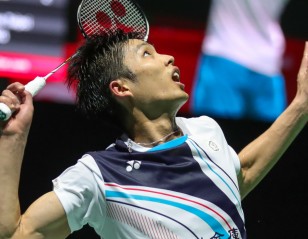
Lessons Learnt, Parting Perspectives 14 September 2019
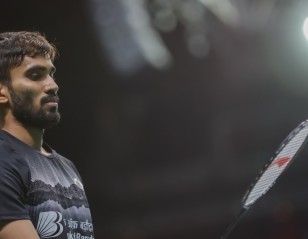
Kidambi Srikanth – A Search for Form 13 September 2019
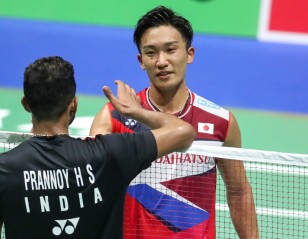
Momota, in the Eyes of his Opponents 12 September 2019
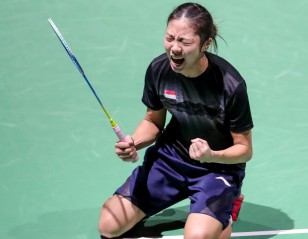
Recap: Upsets at the World Championships 10 September 2019
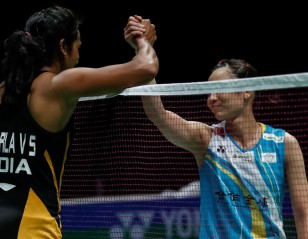
Recap: Memorable Matches of the World Championships 8 September 2019
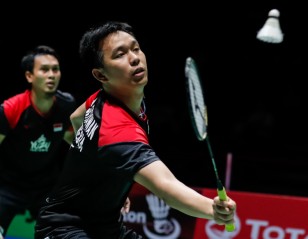
Highlights of the World Championships 7 September 2019
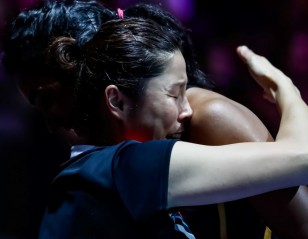
Played ‘Two’ Perfection – Basel 2019 4 September 2019

Badminton, Ice Hockey and the World Championships 4 September 2019
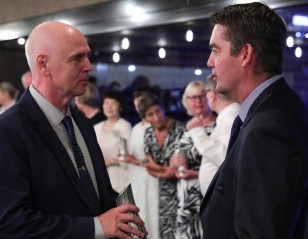
Three-Event Titan – 25th Edition World C’ships 3 September 2019
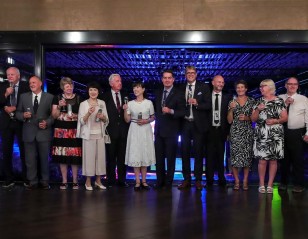
Legends of ’77 – 25th Edition World C’Ships 31 August 2019
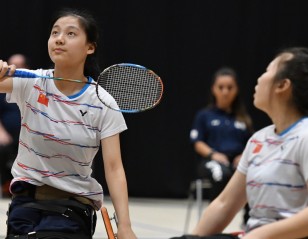
Para Badminton Event Comes to a Close – Basel 2019 27 August 2019
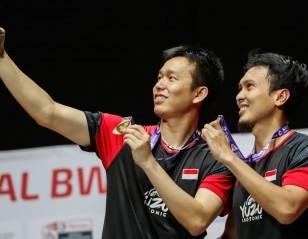
Wristy Trickery Wins the Day – Basel 2019 26 August 2019
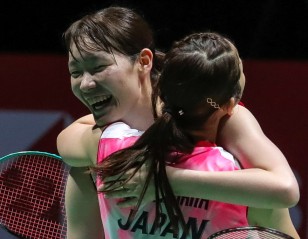
Great Comeback Falls Short – Basel 2019 26 August 2019
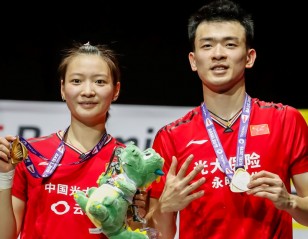
Mixed Doubles ‘Great Wall’ Intact – Basel 2019 26 August 2019
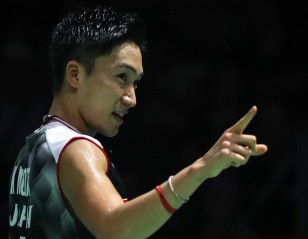
Antonsen Bows to Momota’s Class – Basel 2019 25 August 2019
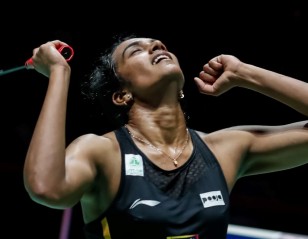
Gold – At Last! – Basel 2019 25 August 2019
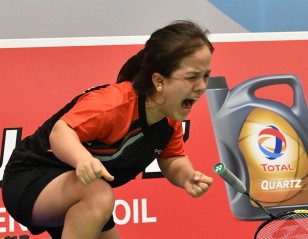
Poveda Makes It a First for Peru – Basel 2019 25 August 2019
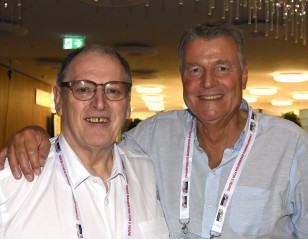
Ray’s a Real Sport – 25th Edition World C’Ships 25 August 2019
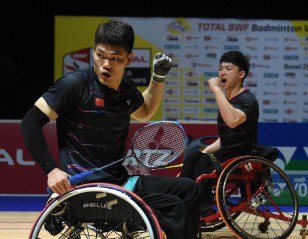
China Take Two Gold – Basel 2019 25 August 2019
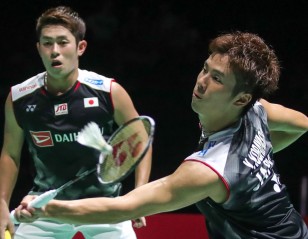
‘Upsetting’ Night for China – Basel 2019 24 August 2019
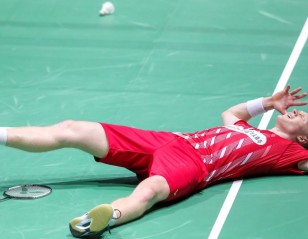
Antonsen’s ‘Insane’ Dream – Basel 2019 24 August 2019
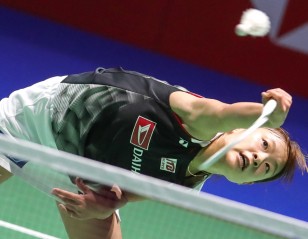
Glasgow ’17 on the Cards – Basel 2019 24 August 2019
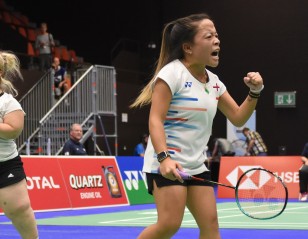
Five Down, Seventeen to Go – Basel 2019 24 August 2019
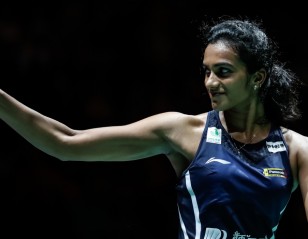
Sindhu Assures Herself: Tomorrow Will Be Different 24 August 2019
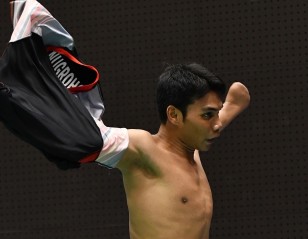
Para Badminton Athletes Turn It Up a Notch – Basel 2019 24 August 2019
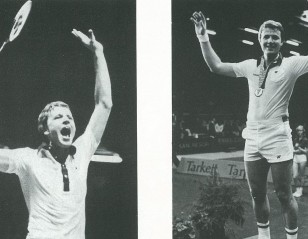
Flaming Dane Set Courts Aglow – 25th Edition World C’Ships 24 August 2019
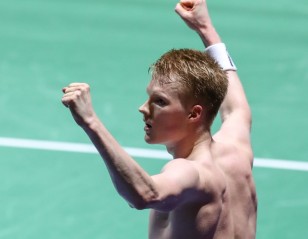
Antonsen Delivers for Europe – Basel 2019 23 August 2019
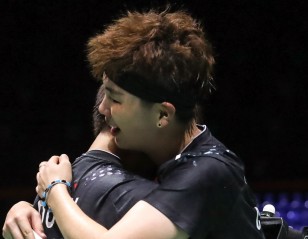
Du/Li Stand Tall After 2-Hour Epic – Basel 2019 23 August 2019
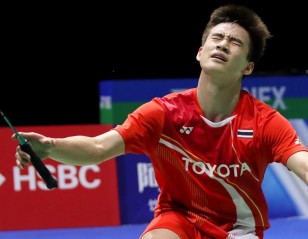
Kantaphon Leads Thailand’s Record Haul – Basel 2019 23 August 2019
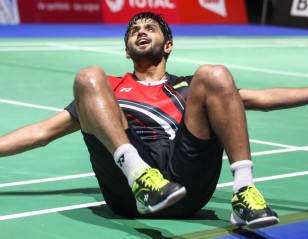
Sensational Session for India – Basel 2019 23 August 2019
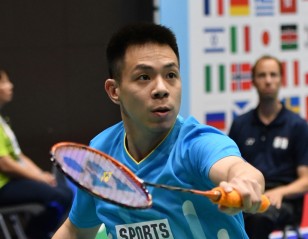
Tall Order for Standing Men – Basel 2019 23 August 2019
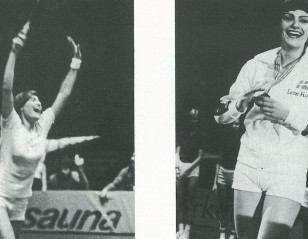
Crowd Pleasing Superstar – 25th Edition World C’Ships 23 August 2019
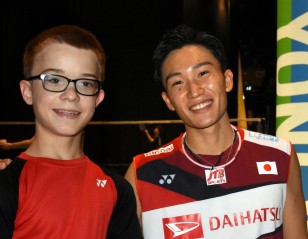
Teenage Shuttler Meets His Idol – Basel 2019 23 August 2019
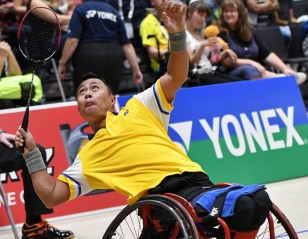
Wheelchair Top Seed Toppled – Basel 2019 23 August 2019
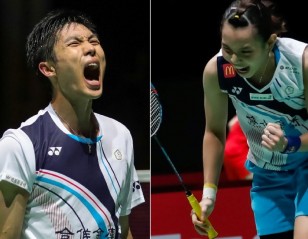
‘Two’ Much Trouble! – Basel 2019 22 August 2019
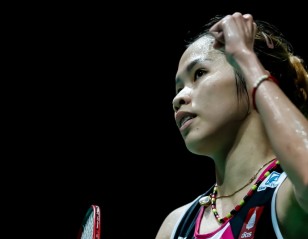
Intanon Survives Scare – Basel 2019 22 August 2019
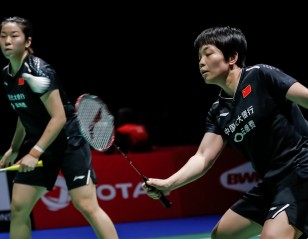
BWF Statement – TOTAL BWF World Championships 2019 22 August 2019
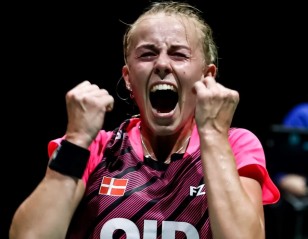
Belated Birthday Blitz! – Basel 2019 22 August 2019
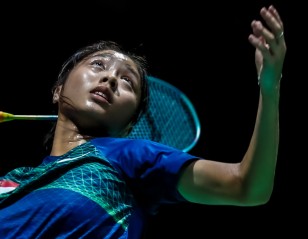
Back Problem Doesn’t Stall Jia Min – Basel 2019 22 August 2019
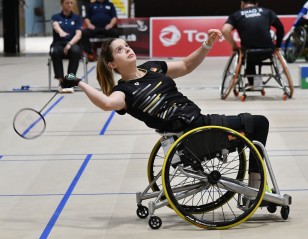
Girl Power – Basel 2019 22 August 2019
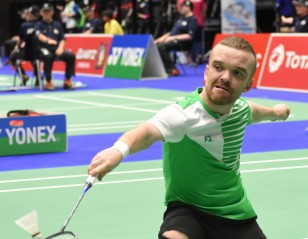
Group Rounds Move into Main Draw – Basel 2019 22 August 2019
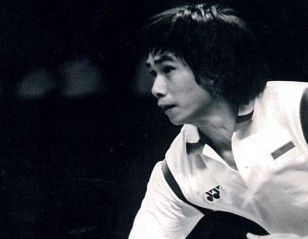
Lessons from the Seventies – 25th Edition World C’Ships 22 August 2019
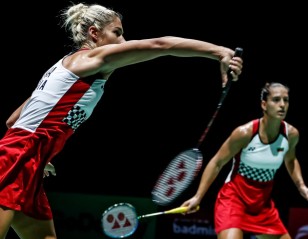
Women Getting in Gear – Basel 2019 21 August 2019
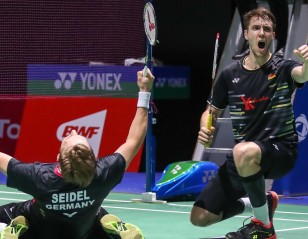
German Shock for Fifth Seeds – Basel 2019 21 August 2019
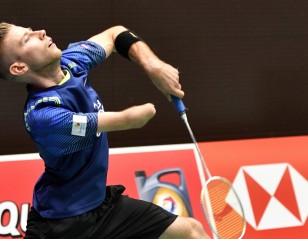
I Feel at Home says Mroz – Basel 2019 21 August 2019
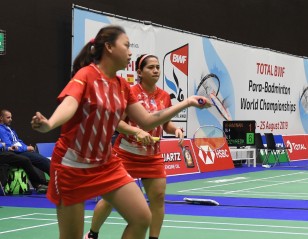
The Power of the Mind – Basel 2019 21 August 2019
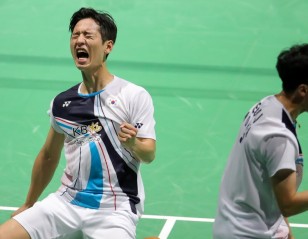
Minions Crash Land at Worlds Yet Again – Basel 2019 21 August 2019
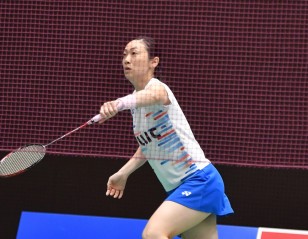
Suzuki Banks on Experience Over Age – Basel 2019 21 August 2019
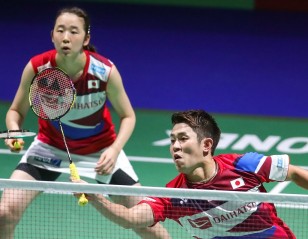
Nagahara ‘Mixing It Up’ – Basel 2019 20 August 2019
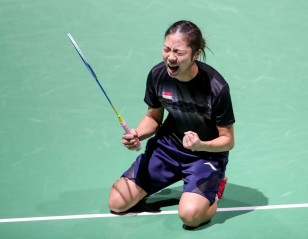
Jia Min Ousts Top Seed – Basel 2019 20 August 2019
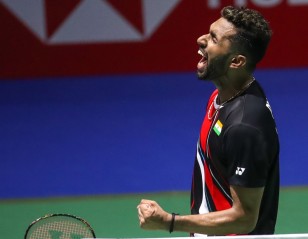
Lin’s Challenge Sputters Out – Basel 2019 20 August 2019
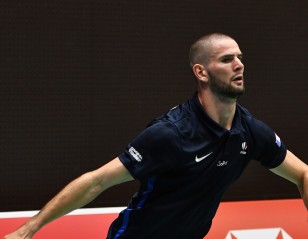
Mazur On Track to Retain Crown – Basel 2019 20 August 2019
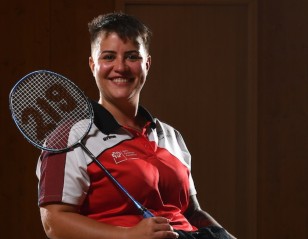
Trading One Set of Wheels for Another 20 August 2019
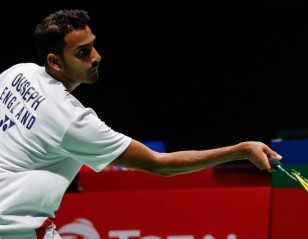
Ouseph Exits Stage, Bids Goodbye – Basel 2019 19 August 2019
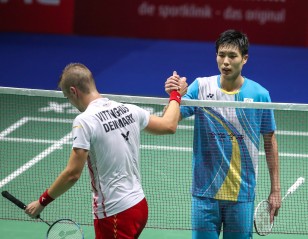
Chou Survives Danish Test – Basel 2019 19 August 2019
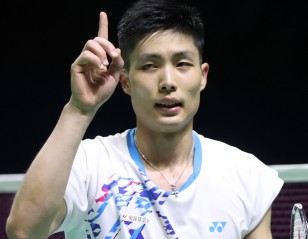
A Title Dedicated to a Battle Against Cancer 19 August 2019
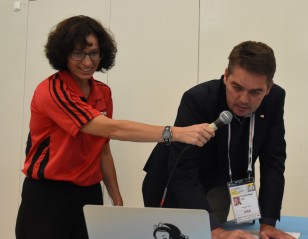
Draw Provides an Even Playing Field for All 18 August 2019
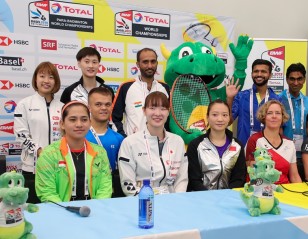
Para-llel Event a Unique Experience for Badminton Fraternity 18 August 2019
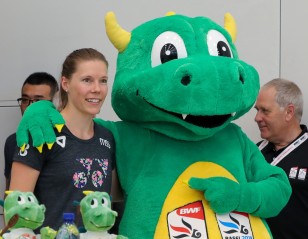
An Occasion to Cherish for Jaquet – Basel 2019 18 August 2019
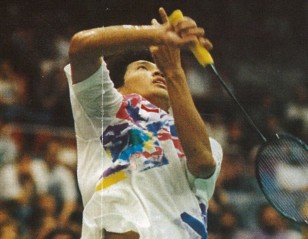
‘100 Watt Smash’ that Lit Up Lausanne – 25th Edition World C’Ships 17 August 2019
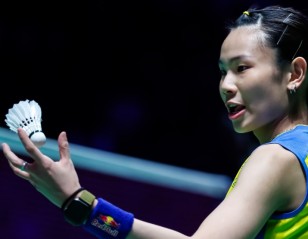
Preview: Worlds of Opportunity 17 August 2019
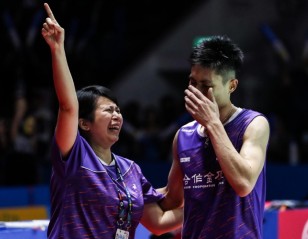
By Chou’s Side 16 August 2019
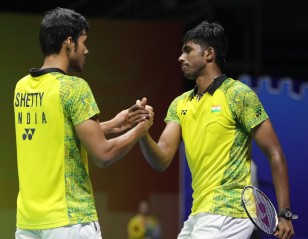
Satwik/Chirag to Miss World Championships 16 August 2019
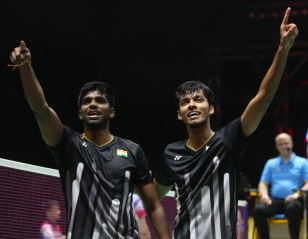
Indian Pair Blazes a Trail 15 August 2019
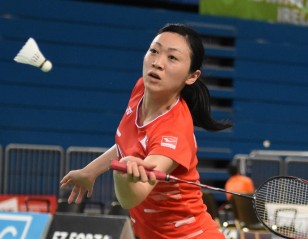
Awesome Threesome of SU5 – Para Badminton World C’Ships 14 August 2019
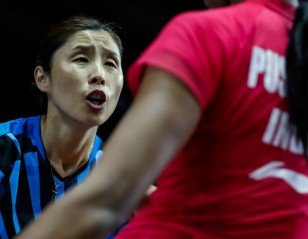
Life Lessons, From Coach Kim Ji Hyun 14 August 2019
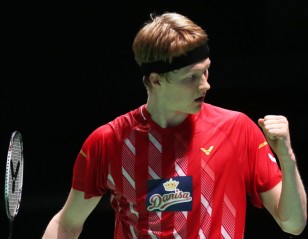
Free of Pressure, Antonsen Senses His Chance 13 August 2019
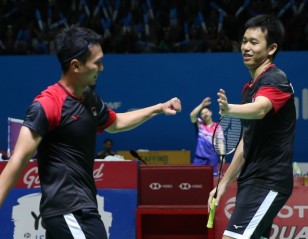
Ahsan/Hendra Play it Cool Despite Hot Form 11 August 2019
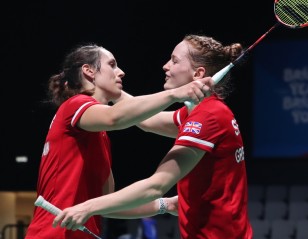
England Duo Anticipate Fruitful Week in Basel 10 August 2019

Women’s Singles Re-Draw – TOTAL BWF World Championships 2019 9 August 2019
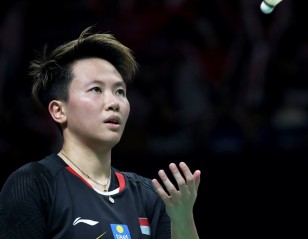
Winny Will Need Support: Liliyana Natsir 8 August 2019
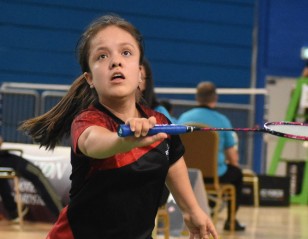
Sports Upbringing Gives Edge to Poveda 7 August 2019
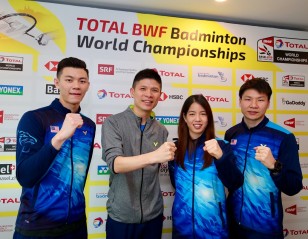
World Championships Draw Released 5 August 2019
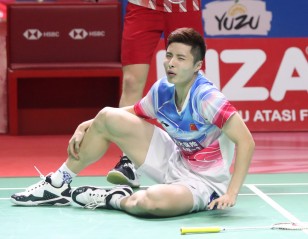
Marin, Shi Join Axelsen on Sidelines 5 August 2019
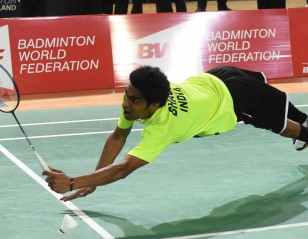
New Para Badminton Chapter Unfolds in Basel 1 August 2019
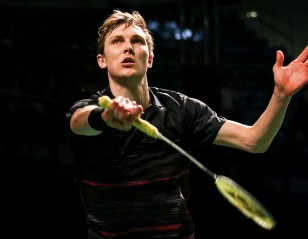
Injured Axelsen Withdraws From World Championships 31 July 2019
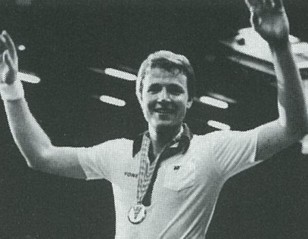
From Malmo to Basel – 25th Edition World C’Ships 30 July 2019
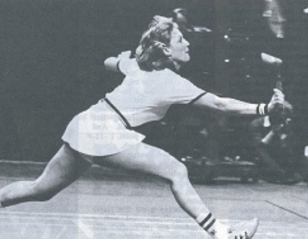
Famous Five and the Good Old Days – 25th Edition World C’Ships 19 July 2019
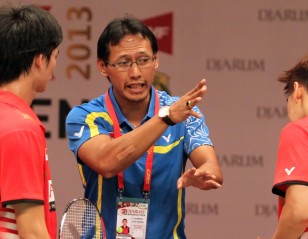
Revisiting a Hero: Sigit Budiarto 11 July 2019
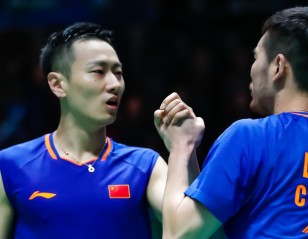
History Beckons Zhang Nan 10 July 2019
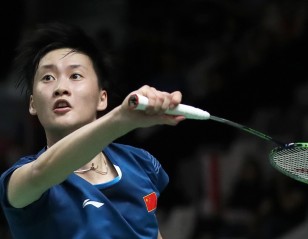
Chen To Lead China’s Charge 9 July 2019
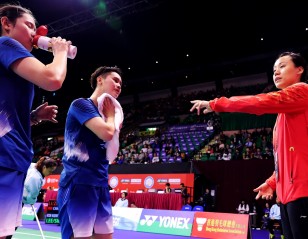
19 Days Left To Register for World Coaching Conference 26 June 2019
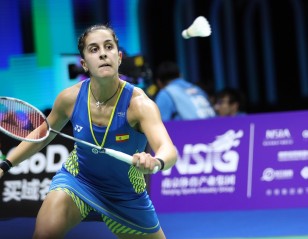
Marin on the Mend and Eyes Return 22 June 2019
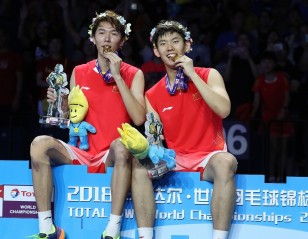
Two Months To Go – World C’Ships Countdown 19 June 2019

Li & Liu – Stepping Up When It Matters 7 June 2019
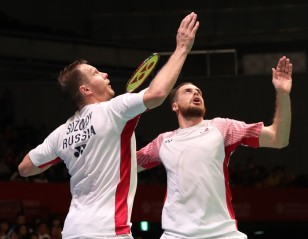
Ivanov & Sozonov Rekindle The Fire 3 June 2019
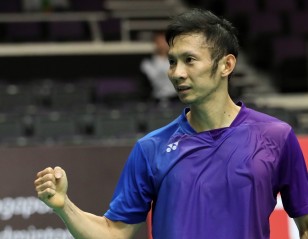
Tien Minh – Veteran Still Chasing His Dreams 2 June 2019
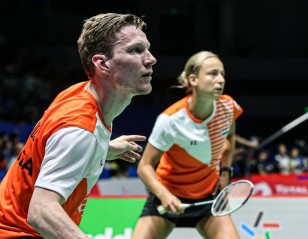
Confidence Boost for Dutch Duo 1 June 2019
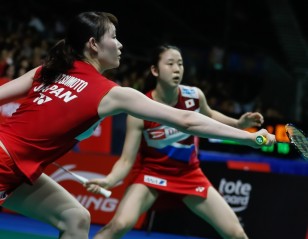
Matsumoto & Nagahara: Rapid Ascent to Pinnacle 8 May 2019
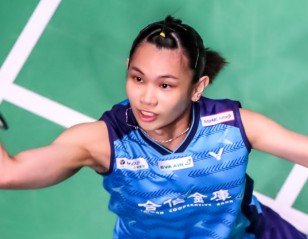
Tai Eases into Top Gear 25 April 2019
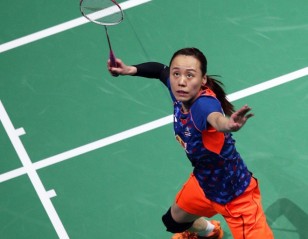
Zhao Yunlei Star Speaker at Coaching Conference 24 April 2019
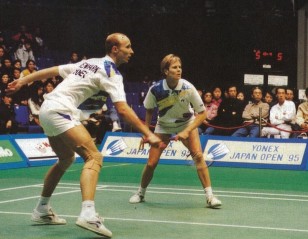
‘The Physical Level Has Gone Up’ 22 April 2019
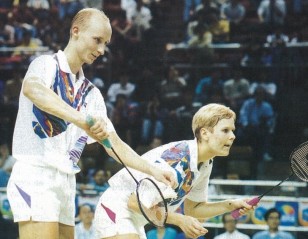
Memories of Lausanne 1995 20 April 2019
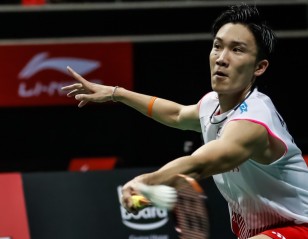
Momota Sets the Pace, but Speedbreakers Lurk 18 April 2019

BWF and Total Celebrate Five Years of Partnership 18 April 2019
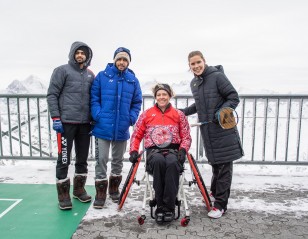
Badminton Thrust into Bright Lights – World C’Ships 13 March 2019

Gold and Glory for Arbi – Throwback ’95 World C’ships 19 February 2019

GoDaddy Extends Major Events Partnership with BWF 11 February 2019
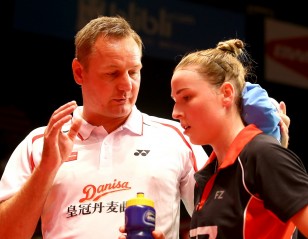
Star speakers assembled for BWF World Coaching Conference 2019 30 January 2019
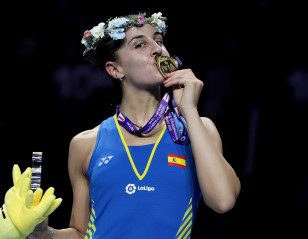
Singles Champions – Down the Ages 20 December 2018
